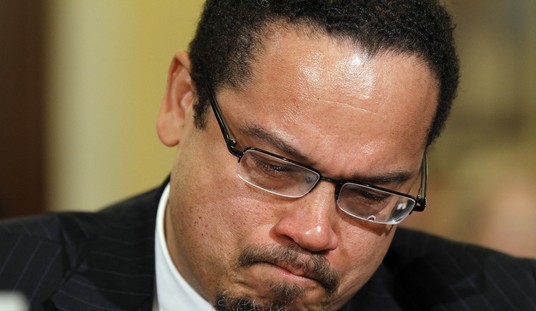I’ve been a little mystified by the argument, advanced by Newt Gingrich, Rick Perry, and Jon Huntsman this week, that Mitt Romney’s experience as a “corporate raider” disqualifies him for the Republican presidential nomination. Put aside the fact that the attack is based on an absurd exaggeration of Romney’s track record at Bain Capital. One of the overarching goals of Tea Party conservatives and Republicans in general is the rapid and sharp reduction in the size of the federal government. How exactly, I ask in my column for The Week, do other Republicans expect to do that without pink slips?
Until recently, Republicans used to cheerlead this very system as providing economic growth and innovation, at least until this week when they became shocked — shocked! — to find gambling in the capital casino. As the Gingrich super PAC uses casino money to proclaim that shock, perhaps another question should be asked of the Republicans joining the outrage. They have all pledged to reduce the size and scope of federal government. Perry, for instance, pledged to eliminate three entire Cabinet-level departments, and Gingrich has made the size of the federal budget a priority, too. Exactly how do they plan to accomplish those goals without cutting jobs — perhaps hundreds of thousands of them? If the arguments for downsizing the federal government are based on red ink, inefficiency, duplication, and waste, perhaps they should explain why those arguments work for the public sector but don’t in the private sector.
Presidential contenders face enormous pressure to win, and the temptation to go all in on a promising line of attack is overwhelming when nothing else appears to be working. However, voters want a candidate that champions economic growth and innovation, not the same kind of class warfare and demonization that has brought us stagnation and misery. If Republicans can’t stand for those principles among themselves, what confidence can we have that they will stand for them in a general election, or in office? And if they argue that downsizing in order to rescue struggling organizations is a disqualification, what confidence can we have that they will have the nerve to reduce spending and the bureaucracy that Republican voters want right-sized?
Jim Geraghty puts it a little more succinctly:
So, here we are, at the day first primary, and the main objection to Mitt Romney from Newt Gingrich and Rick Perry is that he fired a bunch of people? More than his liberal-softie sounding rhetoric in 1994 and 2002? More than his crusade to liberate us from the individual mandate of Obamacare in order to leave the states free to enact their own individual mandates? More than the fact that he’s won exactly one general election in his life, in a year that the left-of-center vote was divided?
Objections to private-sector layoffs from the party that wants to shrink government? How do we think all of those employees of the federal bureaucracy will get of the payroll? Mass alien abductions?
When you think about it, isn’t it possible that the layoffs enacted when Romney was at Bain constitute one of the boldest moves of his career? One of the times he’s been willing to do something unpopular because he thought it was right, and in the long-term interest of the institution he was managing, instead of following the polls and telling people what they wanted to hear?
Much of the focus came upon Romney’s comment that he likes being able to fire people who provide services to him, if he’s not happy with the quality of the service.
You know, the way you can’t with the Department of Motor Vehicles, or the way you can’t (or at least not without Herculean determination) with a crappy teacher at a public school. The way you can’t fire a tenured professor at a state university, whether or not he gives good value for his salary and benefits to those who pay his salary (the students and the taxpayers). The way we can’t take our business to some other government, without leaving the country.
David Frum asks whether good-government conservatives should view this as a plus, and not just in the context of smaller government:
The fact is, presidents (being politicians) get into much more trouble because they hesitate to fire than because they overenjoy it. Donald Rumsfeld lasted for years after it became apparent that his management of the Iraq War was failing. President Obama won’t take action against Eric Holder, not after he bollixed the trial of Khalid Sheikh Muhammed, who has to date faced neither the promised civilian trial nor the substituted military commission. It was son George W. who had to carry the message to White House Chief of Staff John Sununu that he must go, because President George H.W. Bush could not bear to do it. For 13 miserable years, Franklin Roosevelt flinched from firing an incompetent and obnoxious White House cook.
Similar stories could be told about Ronald Reagan and Bill Clinton. Even the ultra-irascible Richard Nixon delivered bad news in writing via messenger.
If Romney does happen to feel less reluctance to fire staffers and officials than recent chief executives, that could be a presidential feature, not a bug.
It’s doubly true for conservatives who want wholesale reductions in the size and scope of the federal government, too.








Join the conversation as a VIP Member